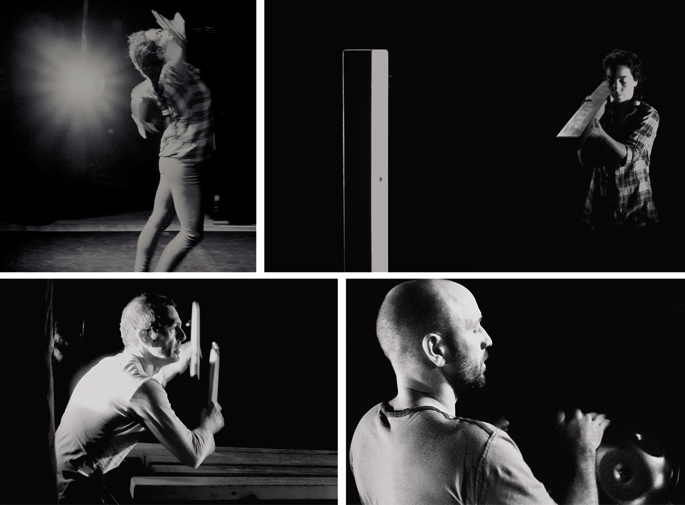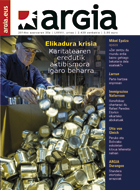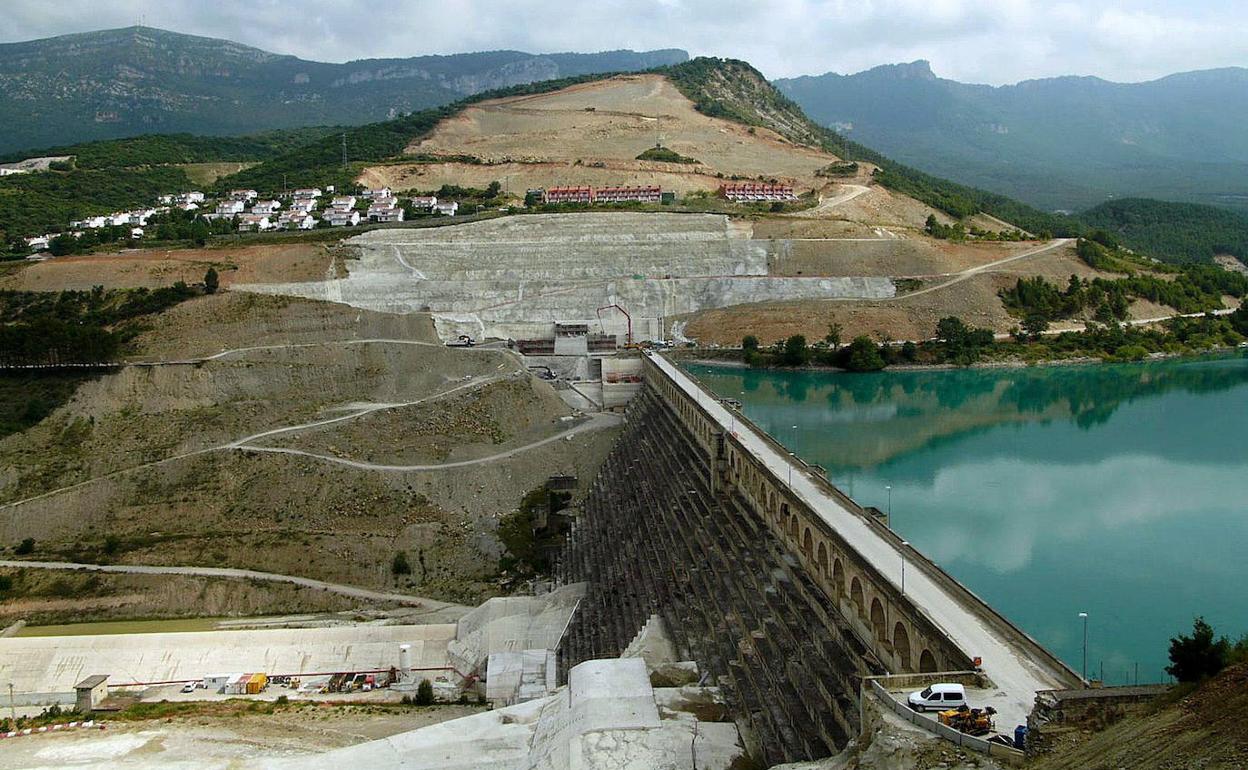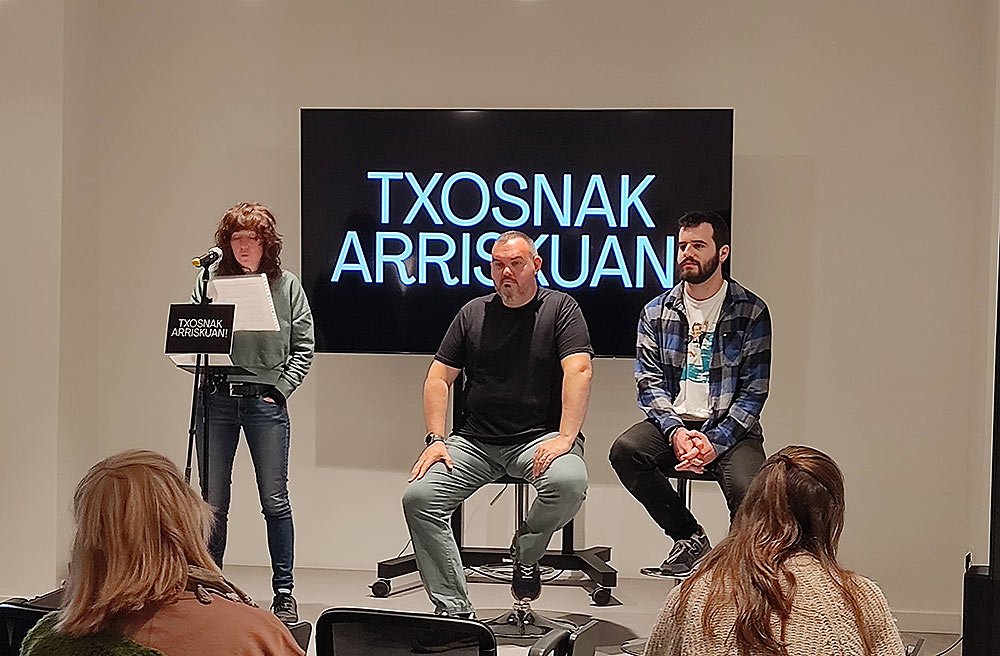Dialectic power

The show Bi hots (Bi hots) was very well received at its premiere in Bilbao (November 1, BAD), which combines dance and various disciplines of the performing arts. In fact, about 150 viewers standing at La Merced School were forced by the applause offered by the attendees, and the actors had to make three farewell exits.
Although it is a simple spectacle from the point of view of the scenery, the results offered by the Bi hots play are very high. As explained by the same name, the struggle of the opposites, the dialectic itself, is the central axis of the show. Naiara Mendioroz and Javier Murugarren, authors and interpreters of the work, bring to the scene a process systematized by Hegel and Marx. Irrintzis and operas, woman and man, wood and iron, stripes and circles, earth and fire, storm and calm are some of the elements used to promote reflection, experimentation, art and creativity.
This is a 47-minute show divided into two parts. The first of them begins with the voices of Mendioroz and Murugarren. In a scenario that only has lights, facing each other, looking at each other, both actors create a dialogue of tones, rhythms and languages; a dialogue struggle that as it progresses becomes increasingly intense – almost, turned into mantra, excited, leaves the audience in trance. Barely, with the music of Bingen Mendizabal, voices become an echo, and they are invited to dance. Lines, circles, holes… It is a very special dance of clubs, which unites meat and wood and places it between them… Or is it a human txalaparta? Curious, effective. I would say that literary figures (aliterations, zangalápagos, repetitions) also transform sounds and movements, as in him, on the path of musicality.
After ten minutes of rest, a txalaparta appears on the tables that moves from one side to the other; while Murugarren stands at a trepidious rhythm, another appears, that of Javier Olaizola: the txalapartas, involved in a sound war, dance. Perhaps, as in Herrhythm, which uses similar elements, txalaparta is a reference to tradition, but I would include it in the so-called music of every day (which uses elements that surround us daily to create music), as txalaparta is a long-standing component in everyone’s life. On the other hand, Olaizola and Murugarren make the current use of txalaparta: as in jazz, they improvise. After all, as Dexter Gordon once said, “jazz is not what you do, but how you do it.”
The duo continues to fight, playing the hang (metal instrument) and harriparta (stone txalaparta). Meanwhile, Mendioroz will take advantage of the txalapartas tables to build something: fence, road…
The view of both sounds forces us to enjoy and think. Each of us encourages us to be a spectacle that inculcates us in itself and liberates a very important quality that we have normally forgotten.
The lighting, which is always important, is provided by David Alcorta. The voices that are heard are from Ziganda's Coral Paz. The Centre Cap Vermell de Mallorca, ZAWP de Deusto, Rimbun Dahan of Malaysia, Azala de Álava and TAE and Casa de Cultura de Villava have also participated in this work, produced by the Basque Government. This month they participated in the BAD festivals of Bilbao, Kaleidoscope of Kuala Lunpur and Environs of Villava. On 19 December you will be able to see it in Azpeitia.
BRN + Neighborhood and Sain Mountain + Odei + Monsieur le crepe and Muxker
What: The harvest party.
When: May 2nd.
In which: In the Bilborock Room.
---------------------------------------------------------
The seeds sown need water, light and time to germinate. Nature has... [+]























